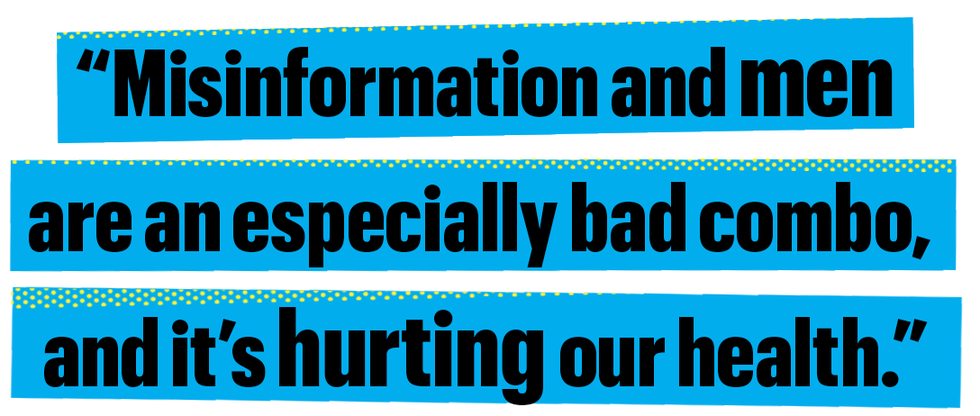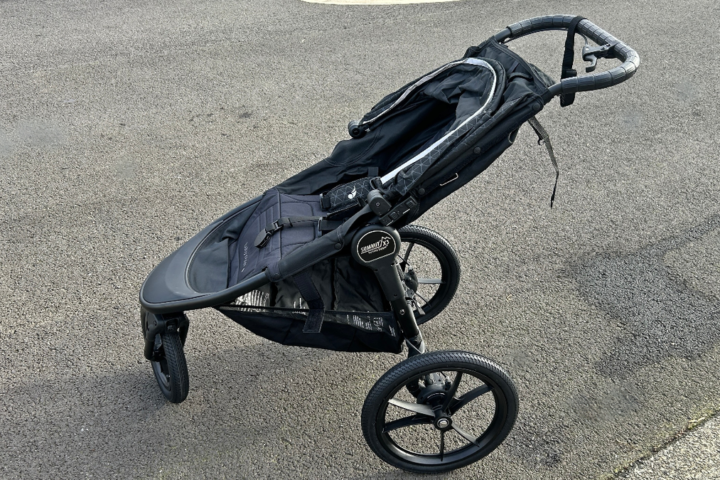We’re awash in science misinformation. It’s being churned out and spread at a pace we haven’t seen before. This is the first story in our 4-part Junk Science series, which gets to the root of why it’s happening and what you can do about it. To go deeper, check out: Part 2: 9 Ways to Know if Health Info Is Actually Junk Science; Part 3: The Best (and Worst) Places to Find Reputable Health Information;and Part 4: What You Can Say to Pull Someone Out of a Junk Science Rabbit Hole.
We’ve all been exposed to quacks, hacks, and fonts of bullshit before. But not like this. We’re at peak misinformation now, and it’s hurting our health.
In a recent Economist/YouGov poll, 20 percent of U. S. citizens surveyed said they believe that Covid vaccines contain a microchip. Think about that. A fifth of respondents subscribe to a theory that has its roots in the idea that Bill Gates wants to track your activities. This survey also found that only 46 percent of Americans were willing to say that the microchip thing is definitely false. Even though there’s no plausible way it could be happening.
These stats are troubling. But given our frenetic information environment, they are also, well, understandable. It is becoming harder and harder to tease out the real from the unreal. Sense from nonsense. Magical thinking from microchips.
Not long ago, I was shocked by a headline about “Covid parties”—people allegedly gathering to intentionally infect themselves and others. Infuriated and without pausing to reflect (or to do sufficient fact-checking), I immediately took to social media to rage about how irresponsible this was. Reality: Covid parties are mostly an urban legend. I was just adding to the noise and our collective angst.
I study misinformation. This is my job at the University of Alberta, where I am a professor of law and public health and specialize in health policy and the public representations of science. I should have known better. But the story played to my values, emotions, interests, and professional passions. Cringe.
This is truly the golden era of misinformation. We are, as the World Health Organization declared in early 2020, in the middle of an “infodemic”—a time when harmful misinformation is spreading like an unstoppable infectious disease.

Part of the problem is that we have normalized nonsense in some very subtle and some very obvious ways. Heck, there are a host of (very) successful wellness gurus who have embraced pseudoscience as a core brand strategy. And thanks to people like Andrew Wakefield—the disgraced former physician who started the vile “vaccines cause autism” fallacy in a paper published in and later retracted by The Lancet—misinformation about vaccine safety has continued to spread and find new audiences.
A sad truth: Misinformation and men are an especially bad combo, and it’s hurting our health. Research from the University of Delaware tells us that men are more likely to believe Covid conspiracy theories and other research suggests they may be less concerned about the harmful effects of misinformation.
Men are also less likely to get the Covid vaccine. While there are myriad reasons for this hesitancy, the male inclination to accept and be influenced by Covid conspiracy theories is a key part of the story. So it’s especially important right now for men to use the strategies here to ingest a healthy diet of information and wash it down with some skepticism.







